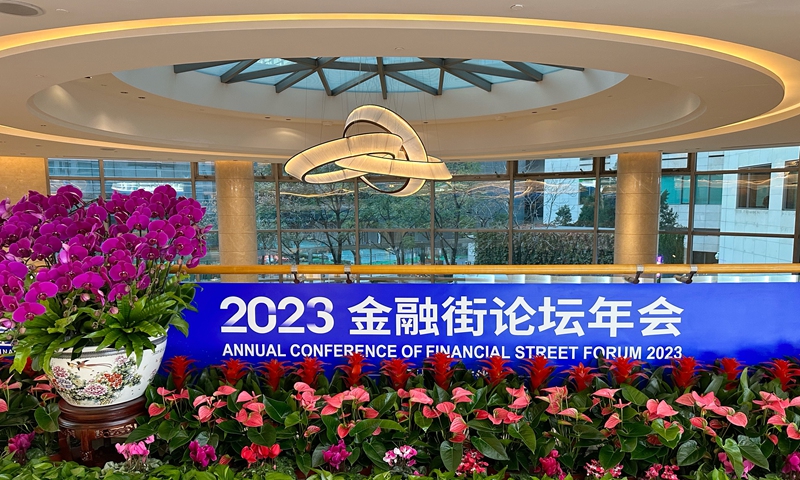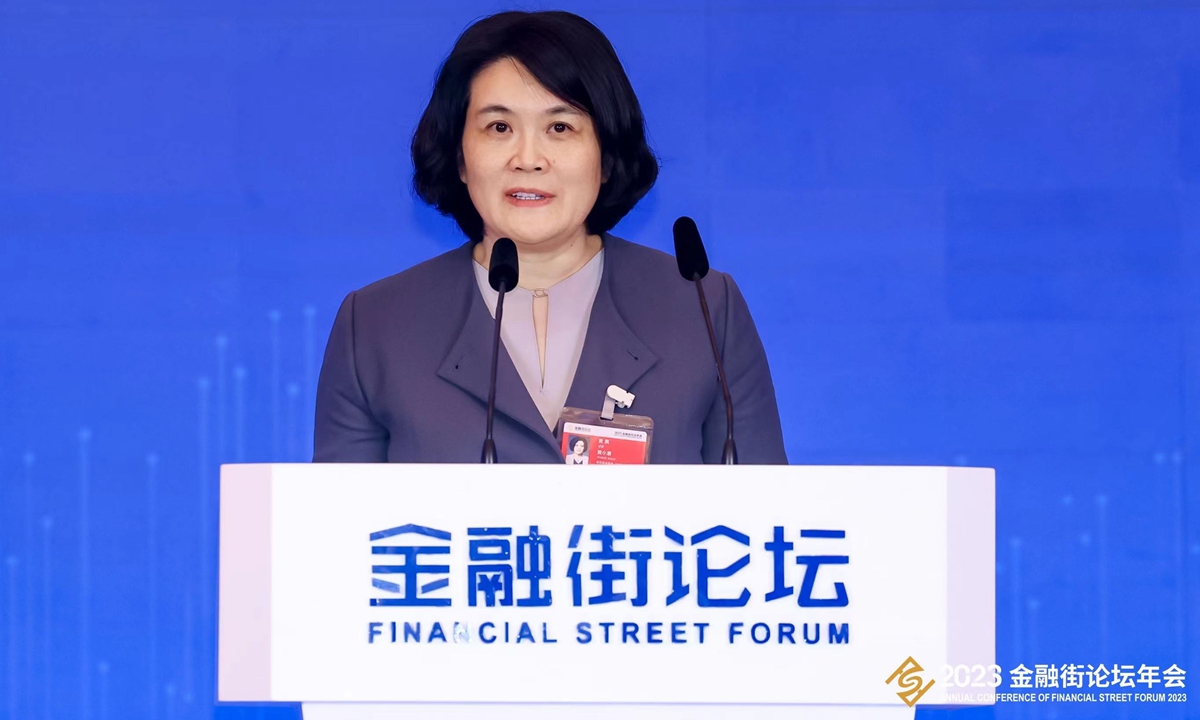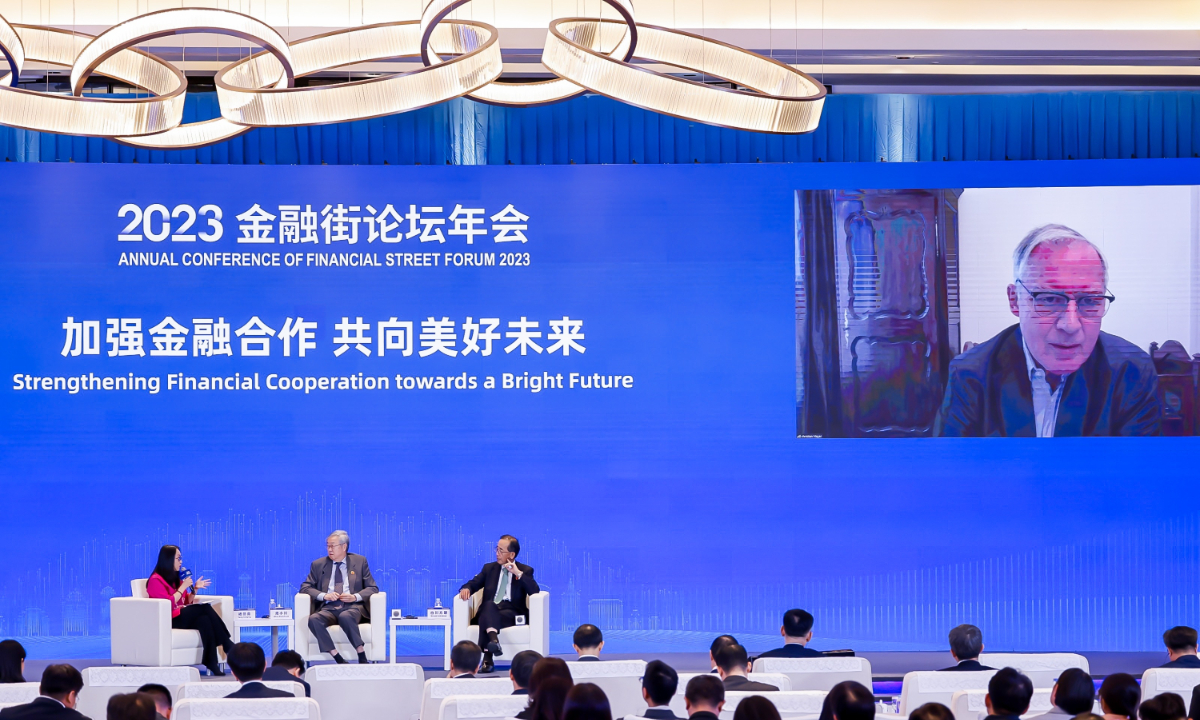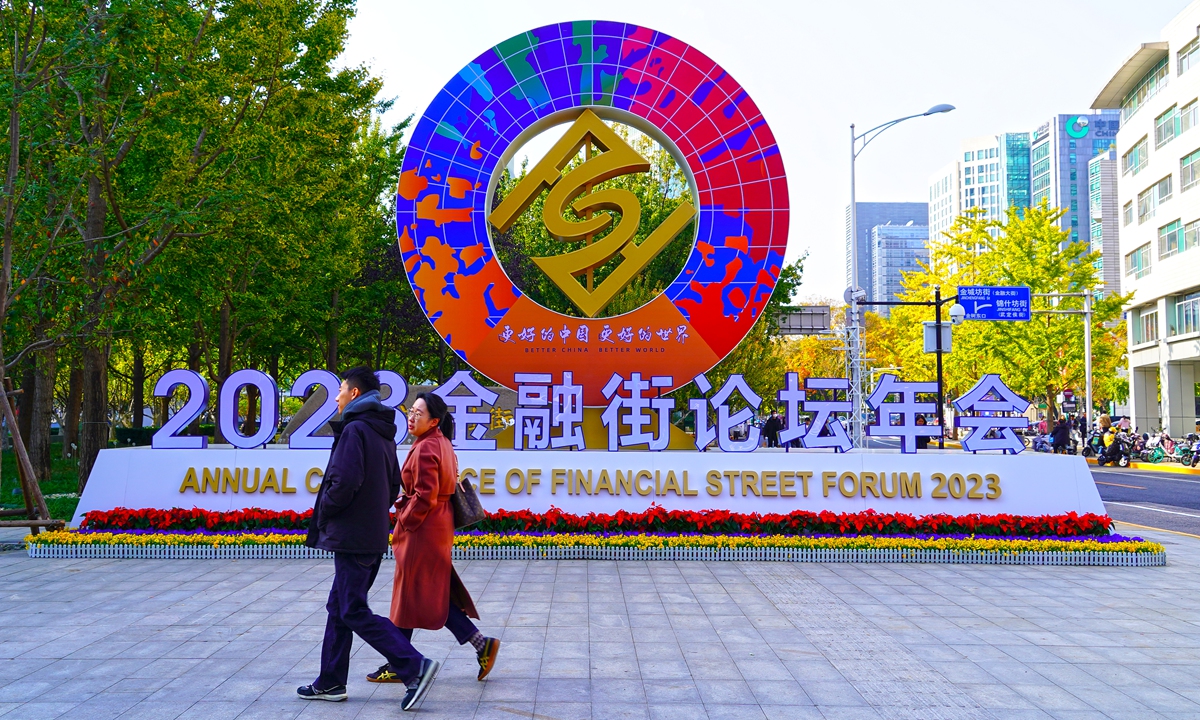Chinese capital market has vast potential to develop despite global uncertainty: Fidelity International representative

The sign for the Annual Conference of Financial Street Forum 2023 is seen on November 7, 2023 in Beijing. Photo: VCG
The Central Financial Work Conference, held in Beijing from October 30 to 31, stressed that the financial sector is the lifeblood of a nation's economy and set the goal of building up a strong financial sector in China. Officials noted the need to leverage the pivotal role of the capital market, improving the registration-based initial public offering system and promoting high-standard financial opening-up. Where will China's capital market reform lead and what opportunities are there for foreign asset managers?
During the Financial Street Forum Annual Conference held in Beijing between Wednesday and Sunday, Global Times (GT) reporter Ma Jingjing interviewed Helen Huang (Huang), managing director for China of world's leading asset management company Fidelity International, about China's capital market reform and opening up, as well as the prospect of investing in China.

Helen Huang, managing director for China of Fidelity International Photo: Courtesy of Fidelity International
GT: This year marks the fifth anniversary of the announcement of the registration-based IPO system in China. Over the last five years, China steadily promotes capital market reform and opening-up, for example, setting up a STAR market in Shanghai and lifting foreign ownerships in joint securities and fund management firms in China. How do you think the measures will help boost the development of China's capital market?
Huang: As the Chinese economy has embarked on a path of high-quality development, the country's capital market opening-up has gained pace, and institutional and high-level opening up has accelerated. Thus, it is now more convenient for foreign financial institutions to deeply participate in the market and step up their investment arms in China. As one of the first global asset management companies to enter China and conduct business in the country's mutual fund industry, Fidelity International's presence in the market has been for nearly 20 years.
Since the rollout of the Connect Program between the Chinese mainland and Hong Kong, the connect in stocks, bond and other sectors continues to expand, which greatly boosts the development of both markets. As a supplement to Qualified Foreign Institutional Investor (QFII), the mechanism offers a new channel for institutional investors to gain access to China's capital market. China's move to expanding wider financial opening-up will also attract more long-term capital, contributing to the mature development of China's capital market.
The implementation of the registration system will lead to a more market-oriented approach to IPO pricing. It will speed up listings by optimizing the book building mechanism and help businesses explore their real values. As a result, it will curb speculation around shell companies and ensure that business survival is determined by free market competition.
GT: China keeps expanding opening-up across its capital markets. What opportunities are there for foreign financial institutions?
Huang: The pension market, cross-border capital flow and investment advisory (have many opportunities). Some foreign asset managers including Fidelity International manage pension funds of over $100 billion overseas and have accumulated mature investment management experiences. We hope that related entry threshold can be lowered so that such experience could be brought to the Chinese market and contribute to Chinese people's retirement welfare.
In addition, we hope that the market access for Qualified Domestic Institutional Investor (QDII) program and licensing for investment advisory can be further relaxed while convenience for cross-border capital flow can be further increased, beneficial for two-way financial market opening-up.
With our global market tradition and experiences, especially our deep experience in pension fund management and environmental, social and governance (ESG)-related investments, we hope to contribute to the long-term thriving of China's capital markets.
GT: What's the status quo of Fidelity International's operations in China and what's your view on investment prospects in this market?
Huang: China is one of our strategic markets in the world, and we are optimistic about China's development in the long term. In the face of global uncertainties, the Chinese market is a good place to diversify the portfolio and explore value, as China's macro-economic fundamentals are more stable and more resilient to deal with external challenges.
Meanwhile, inflation in China is well under control, and the country has plenty of macro-policy room since it can adopt more relaxed monetary and fiscal policies.
Given remarkable achievements made in China's capital market over the past 20 years, both the market and investors are increasingly mature. We look favorably on the future development of the Chinese economy.
China is the world's second-largest economy, but the weight of Chinese A-shares is less than 3 percent among global asset allocations. This means that there exists a vast growth room for China's capital market. Chinese leading enterprises going global will create more opportunities while the country's continuous financial opening-up will attract more long-term money to flow to the market.


